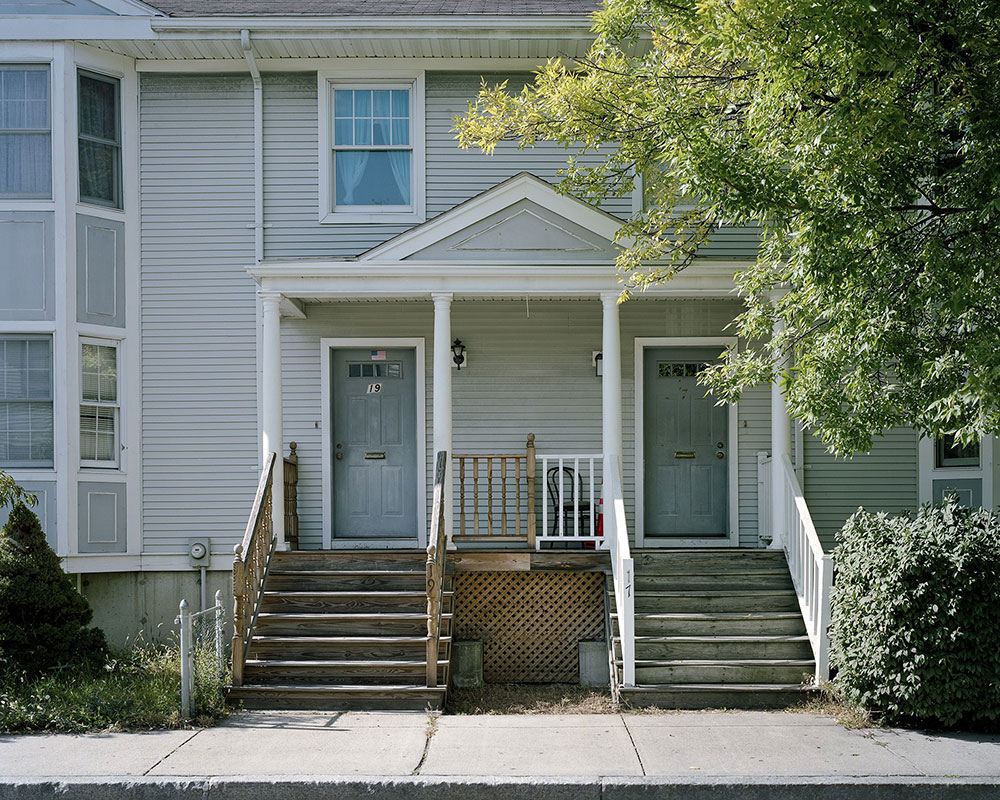Stability
Outcomes eminent domain giving control to residents: stability and more

©Richard Wasserman, 2013
The increased civic engagement in Dudley and the visible improvement of the physical environment have had a positive cascading effect over many aspects of life in the community. Other programs and community institutions that DSNI runs or helped to develop have increased the ability of the community to build resources from within. The land acquired by eminent domain has been “transformed into 225 new affordable homes, a 10,000 square foot community greenhouse, urban farm, a playground, gardens, and other amenities of a thriving urban village.”[1]
In contrast to the gentrification-displacement cycle that creates instability for low-income residents, DSNI’s democratic model of community planning and development produces stability in the community. Low-income renters and homeowners are not looking over their shoulders for developers or real estate investors who might displace them and force them to move yet again. New businesses and organizations that have attracted to the community are vetted by DSNI to make sure they serve the interests and needs of residents.
DSNI holds businesses and service organizations to its standards of community involvement and engagement.[2] Dudley Neighbors, Inc staff member, and life-long resident, Tony Hernandez observes that this creates a “ripple effect.” DSNI builds lasting positive relationships with new businesses and organizations. Hernandez explains that this creates a culture of accountability and responsibility to the community:
"The ripple effect of that relationship has also built relationships between the organization and businesses in the neighborhood…. When bigger businesses want to try to establish something in the neighborhood we have an understanding with the city that those entities need to go through our boards for a letter of approval determining whether we think that what they are bringing in to our neighborhood is good or not."
Rather than seeing businesses as outsiders exploiting low-income customers, Dudley Street residents see them as serving community interests. For example unlike payday loan stores and high-fee check cashing businesses that prey on low-income communities, Diane Dujon, one of DSNI’s early homebuyers, feels that her local “bank is something that I can go to and withdraw from. …I mean support and different kinds.”
Dujon also points to the increased stability that has come to Dudley with these supportive businesses and the affordable housing built through DSNI efforts. She notes that of her neighbors, only one has moved in the last 15 years and even that was a result of a divorce and not due to other forces such as gentrification displacing the residents. Likewise, John Barros explains that families from only five units out of roughly 225 have moved in the last 18 years. Some have moved out because of the success of the DSNI. After years of living in the newly-built affordable housing, they have been able to establish greater financial independence and move into larger market-rate homes.
[1] DNI.
[2]Leah Mahan and Mark Lipman, Gaining Ground. Blooming Grove, NY: New Day Films, 2012.

